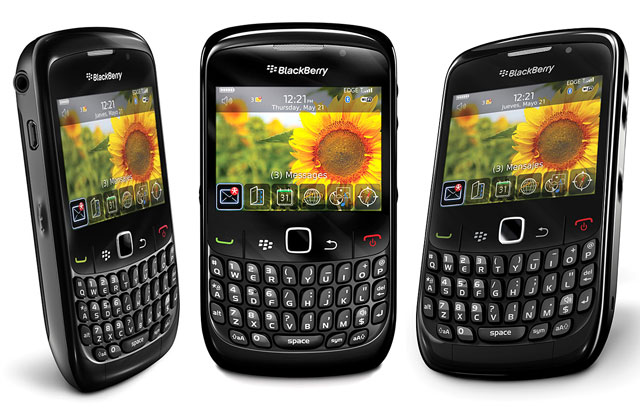
These are dark days for BlackBerry and Research in Motion (RIM). Though the Canadian company’s smartphones continue to sell well in some emerging markets, including SA, consumers at the higher end — they are the more profitable segment for handset manufacturers — are abandoning it for the Apple iPhone and devices running Google’s Android operating system.
On Friday, RIM shares plummeted by nearly 20% after it said it had reported a loss of more than half a billion dollars and that it would cut 5 000 jobs. Most seriously, though, it said it had been forced to delay the release of BlackBerry 10 — the software it’s pinning its survival on — until 2013.
Speculation is growing of a possible tie-up with Microsoft, which is already in bed with another troubled mobile device manufacturer, Nokia. The Finnish company has thrown its lot in with the US software maker and committed its future smartphone strategy to Windows Phone. There’s also a talk of asset-stripping RIM before there’s no value left to salvage.
Whichever way one looks at it, these are dark days indeed for the company that once dominated the smartphone market. Research by International Data Corp shows RIM had just 6,4% of the market in the first quarter of 2012, next to 59% held by Android and 23% by the iPhone.
Simon Leps, CEO of Cape Town software development house Fontera Digital, which specialises in e-commerce and m-commerce applications, says RIM appears destined for acquisition by a larger player or someone looking to get a foothold in the hardware market.
“Our feeling is that RIM is going to be bought out soon because it can’t go it alone as a handset manufacturer anymore,” Leps says. “The companies offering an environment are going to make it big — companies such as Amazon, Microsoft, Facebook, Apple and Google. BlackBerry can’t compete with them.”
He reckons the lack of a new BlackBerry operating system is a “huge problem” for the company, particularly when new sales are already sluggish.
BlackBerry remains attractive to lower income earners in SA due to its all-inclusive data and instant-message platform, BlackBerry Messenger (BBM). Although this is true of a number of emerging markets, Leps says that without sizeable sales numbers it’s impossible to fund research and development, which makes it impossible to keep up with Google and Apple.

“BlackBerry is already far behind,” says Leps, adding that he expects local mobile operators to release sub-R1 000 Android phones tied to flat-rate pricing — albeit with browsing limitations — in the coming months, meaning BlackBerry could lose the low end of the market along with the top end.
“A budget handset and fixed-cost data package would target the same market as BlackBerry,” he says. “People will realise that Android is innovating far faster, and the aspirational advantage BlackBerry has is going to slip.”
In the business market, traditionally BlackBerry’s stronghold, Leps says the company is “holding on by its fingertips”. He says most big firms now support Apple’s iOS and Google’s Android devices and the forthcoming updates to those operating systems, along with the upcoming release of Windows Phone 8, mean enterprises are less inclined to dictate that their staff opt for BlackBerry devices.
Leps says BBM is also losing ground to cross-platform instant-messaging services like WhatsApp. “There was a time when your friends were on BBM, which made it attractive. But if everyone’s on WhatsApp, it doesn’t matter what handset you use.”
BlackBerry is also losing the battle of the applications. Though it’s had some success wooing developers to its platform, Leps says it remains far behind Google and Apple in terms of diversity, something consumers expect, particularly from high-end handsets.
“One thing RIM is good at is its e-mail system,” he says. “It’s probably the biggest reason its tablet [the BlackBerry PlayBook] failed – it shipped a tablet that didn’t do the thing the company is best known for.”
Leps suggests another company might try to buy RIM’s e-mail software, along with BBM. “Perhaps BlackBerry and Nokia can work together. Nokia has a huge distribution network and BlackBerry has some great systems. Both companies are in trouble and have to make sure they don’t go the way of Atari, which really laid the groundwork in videogaming but died due to stagnation and lack of innovation.”
For many years, BlackBerry was the device of choice for business people, in turn making it an aspirational device for those on the lower end of the spectrum. “High-income buyers drive low-income aspiration,” says Leps. “Do people still view BlackBerry as aspirational? I don’t think so.”
Arthur Goldstuck, MD of research and consulting firm World Wide Worx, believes RIM will be bought before it heads for the scrapheap. “When you have 81m customers using a service, you don’t suddenly close down. It would take pretty bad management to run a company like that into the ground.”
Goldstuck says RIM’s new CEO, Thorsten Heins, was thought to be the perfect person to turn the company around because he had both a technical and business background. “But now the company is claiming a ‘technical challenge’ is the reason for the delays with BlackBerry 10. You can’t afford a further delay when the current one is causing many of your woes.”
According to Goldstuck, if the new operating system were to be released now it could — perhaps — keep up with its rivals. But in nine months’ time, when BlackBerry 10 is expected, it will already be dated and the company can hardly expect users who were holding out for the original date to hold out even longer.
By delaying the release of BlackBerry 10, Goldstuck says RIM may have “written its own epitaph”. He says the decision to delay is “staggering” because the first delay, to the third quarter of this year, was already stretching consumers’ patience. He suggests a fitting epitaph for the company would read: “Here lies RIM. Delayed OS 10 to 2013.”
Goldstuck says BlackBerry remains aspirational in developing markets but wonders how long it can maintain that. “BBM is an incredibly appealing instant-message platform,” he says. “BBM’s emoticons make WhatsApp’s look quite lame. BBM is fun, in a way Whatsapp isn’t. It’s what keeps the youth market interested. BBM has a ‘cool factor’.”
According to Goldstuck, it’s this “cool factor” that means it’s dangerous to write off the company, despite the grave situation it finds itself in. “Demand for the Curve (BlackBerry’s entry-level handsets) remains high. But BlackBerry is losing the high-end market completely. The appeal of the Curve might be good enough to keep it going this year, but I’m not sure that’ll be the case next year.” — (c) 2012 NewsCentral Media
- BlackBerry image: Matt Hurst/Flickr




